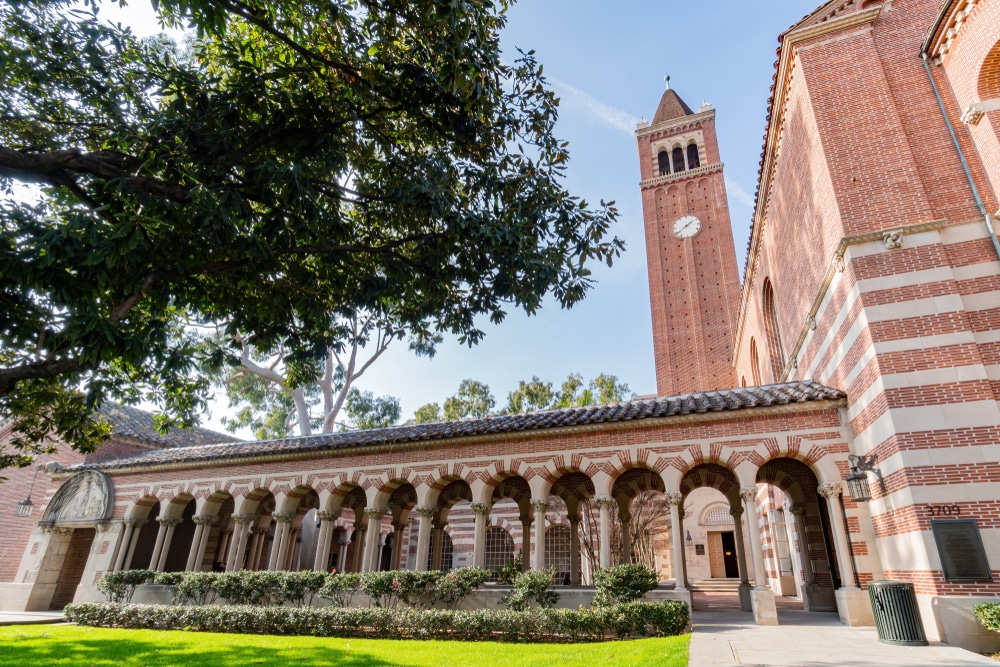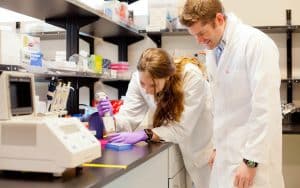What is the Simons Summer Research Program?
The Simons Summer Research program is an unmatched opportunity for the enthusiastic scientific researcher in you.
For high school students with a passion for STEM, the Simons Research Program offers a top-notch summer adventure. Think of it as your personal hands-on lab where you dive into cool projects and explore the depths of science and technology. With guidance from expert mentors, students get a firsthand glimpse of the future of these fields.
If you’re contemplating joining or have already grabbed your spot, this guide aims to prep you up. We’ll outline what’s in store, guide you on brushing up on essential skills, and ensure you maximize this phenomenal experience. Gear up for a summer filled with learning, discovery, and unparalleled growth!
Why is preparation key for a program like Simons Summer Research?
Think of the Simons Summer Research Program as the ultimate science marathon. Just as runners would only show up to a race with training, students shouldn’t dive into this program unprepared.
Getting ready beforehand ensures you hit the ground running, fully grasping complex topics and making the most of every learning moment. When you’re prepared, you’re not just participating but excelling. Set yourself up for success, and don’t let this chance slip by because you weren’t ready. Preparation is your ticket to shine in this unique STEM journey.
Summer breaks are all about fun, lazy mornings, unlimited playtime, and watching favorite series on Netflix. Or, so you thought. But for highschoolers, summer breaks are far from ‘laid back’. Even before summer sets in, every highschooler’s mind is set on the mission to make the most out of their summer break. If you are a highschooler you do realize that summer breaks are the best opportunity to build on your interests and skills which will also enable you to pursue these as you plan for college. Simons Summer Research Program does that for you.
Regular school days don’t leave you with enough time at hand to pursue your real passion. And, summer breaks can be that perfect time of the year when you can prove yourself beyond test scores and grades. Thankfully, college admission applications aren’t just scouting for top test scorers. The best colleges in the U.S., such as Harvard, Yale, Princeton, etc., look for well-rounded students with extraordinary passion and demonstrated caliber in their subject of interest.
If you are considering specializing in a science subject you could possibly be spending a lot of time thinking about how to make your college application shine through the very competitive admission process. Needless to say, you are anxious and feel the stress a little more than the rest. The college that you get through will act as a cornerstone of your career. Undoubtedly, you want to build your professional life on a solid foundation. The bottom line is, your application should come out as really impressive to the admission team.
So the key question is, how do you utilize your summertime such that it brings out the best ‘scientist’ or ‘engineer’ or ‘medicine expert’ in you? How do you prove your love for this subject beyond grades and AP classes? Here’s where research that you take up now can really prove handy.
But most students find themselves confused about where to start with their research. For example, you might have a brilliant idea but not sufficient resources to bring that idea to fruitation. Or, you might have started your project but are stuck at a point with challenges you knew little about. No one around can guide you because none of your peers is a science graduate or expert. If you don’t want to see yourself suffering because of any such reason the best way out is to enroll with an institute like the Simons Summer Research Program.
Platforms like the Simons Summer research program bring classroom learnings to real life. The research and activities that you take up at this summer research program will not only prepare you for college but open an unexplored world of ideas and innovation.
It makes the utmost sense to enrol for a platform like the Simons Summer research program if taking on challenging research in a subject of interest is close to your heart. If you are looking for four clear reasons why you must think about pursuing research at this research program, read on.
Pursuing research at the Simons Summer Research Program – 4 benefits
Of course, the kind of experience you gain is going to help you craft an exceptional essay for your college application – the type that outshines others. But, more importantly, the kind environment and learning that Simons Summer Research program fosters will prove to be extremely enriching. This specialized summer program offers a great deal of benefits to students who are curious to unlearn, learn, experiment, and grow. Four such key benefits are explained ahead.:
#1 — Learning by Doing
A platform like the Simons Summer Research Program offers ample exposure to the world of science. Here, you can break free from the four walls of the classroom. Learning by doing takes the forefront. In high school, you can only give limited time to lab-based learning. When enrolled in a summer research program like the one offered by the Simons Summer Research Program, your very basis of learning is being hands-on with it. Experimentation, data collection, observation, developing a scientific viewpoint, challenging existing theories, and bringing innovation to life – that’s the kind of exposure you should be looking forward to at this research program.
#2 — Easy accessibility to resources
It can be tough to find a lab to pursue your research or experiment. To avail one, you might have to request professors or find someone who is connected with a university to help you use a lab. This ‘hunting’ for resources can be time-consuming. It might actually end up eating a valuable chunk of your summer break leaving you with only a week or two to finish the actual work. Even if you do manage to get a lab arranged to work in, what about help and guidance? For students whose parents or siblings with limited knowledge or resources in their area of expertise, this entire exercise can be truly daunting.
Having enrolled with Simons Summer Research program, you’ll not have to spend a single day worrying about finding a lab or a mentor. As a program research participant, you will gain easy access to the best of resources. The Simons Summer Research Program, for example, carefully matches each student with their mentor. The idea is to help students make the best out of the brilliant ideas under the guidance of experts of repute in their field of study.
#3 — Unparalleled networking opportunities
When in the Stony Brook’s campus, you’ll meet students from all across the country. Few may share a similar fondness for a subject that you are also passionate about and could be your life long allies. You’ll get to learn a lot from them and with them. Similarly, at the Simons Summer Research Program you will be introduced to mentors and professionals who will not only help you with your research completion at the summer program but who’ll be there to guide you throughout your life. When you take on a challenging career in science it will be these friends and peers who you can look up to for expert advice. They will be the ones who stand like your unparalleled support network.
#4 — Expert guidance on research feasibility
Undertaking research in the presence of peers who are interested in the same subject will prove to be an extremely fruitful exercise in understanding your research idea’s feasibility. Mentors at the Simons Summer Research Program will help you analyze the strengths, weaknesses, opportunity areas, and threats (or barriers) of the research you are willing to undertake.
For example, you may wish to apply your grasp on organic chemistry to your research topic. However, while working with peers and mentors you might realize that it probably won’t make the best research choice. There could be barriers or threats that might hinder your research work. Your idea may require you to devote time to research beyond the duration of the summer program you’ve enrolled for. And, it is quite possible that with too many other things at hand post-summer break, you may not be able to give the needed time to complete the project. With guidance from the mentors, you’ll be able to pick the right research topic, perform study and conclude in a time-boxed manner.
Now that you understand how pursuing research clearly gives you an edge over others you would be eager to apply. And, if you are thinking that this would be an ordeal similar to applying for TASP or some other highly selective summer programs, take a breather. Applying to the Simons Summer Research Program is a simple process that we’ve detailed on in the upcoming section. Although you do have to work on your summer program application for it isn’t something you need to fret.
Applying to the Simons Summer Research Program – The Pre-requisites
We’ll keep this really short and simple. These following steps will help you apply for the Simons Summer Research Program:
- You must currently be in your junior year of high school when applying for this program. You must also be a US citizen and/or a permanent resident.
- You must seek a nomination from your high school for participating in the current year’s Simon Summer Research Program. Additionally, your nominator who typically is a science research coordinator/director, may ask you to select up to two nominees from the school for the program.
- Before filling your online application you must confirm with your school’s authorized nominator that you are one of the school’s nominees for the current year’s summer program.
- You will be required to upload your transcript/grade report (PDF) at the time of submitting your online application form.
- You may be required to obtain and submit recommendation letters from two of your school teachers.
Note that you don’t need any prior research experience to apply for the Simons Summer Research Program. You are free to indicate a preferred area of research interest while filling your online application. As a part of the selection process, you may be required to go through screening such as telephonic or in-person interviews, just like the ones that you will need to face when applying for college admission.
We hope you recognize this is a great platform to carry out your research. But, how do you make sure that your desired colleges like the kind of research you pursued at the Simons Summer Research Program? It’s a critical question that you need to think through. Taking on a project that’s close to your heart is a good idea. However, what you also must understand is that colleges are looking for research ideas that are futuristic and take a problem-solving approach.
Be it developing an app or designing a virtual reality tool, it should have a defined goal or purpose to it. What is the driving force behind your research? What problem/s does it aim to solve? Those questions should be the propellers of your research ideas. Passionate about coding? Show them that you aren’t just fluid with Logo, Pascal, Python, Ruby on Rails, and ‘n’ such other languages but that you have the knack of using them to create a fantastic Payroll tool using any of these languages. That’s the kind of zeal and curiosity college admission officers are looking for in students. And, your research at the Simons Summer Research Program should reflect this passion towards science in your college application. So, work on something that’s different and shows your real passion for the subject.
For budding scientists and research enthusiasts, the Simons Summer Research Program is an unmatched opportunity. Sure, there are a number of other programs too that you can consider enrolling for such as the Research Science Institute or Summer Science Program. Each comes with its unique advantages.
However, the pedigree of the mentors at Stony Brook summer research programs is unparalleled. The kind of faculty that mentors students undertaking research at Stony Brook is unquestionably the best. What more could you ask for when you have mentors like Dr Jessica C. Seeliger, Ph.D., Stanford University, or Dr Brian Sheridan, Ph.D., Immunology, University of Pittsburgh School of Medicine, by your side guiding you with your research work!
You may also like to know about other programs conducted at Stony Brook, details are shared below.
What can prospective participants expect in terms of intensity and commitment?
Jumping into the Simons Research Program isn’t just another summer activity; it’s a full-on STEM adventure. As you dive deep into hands-on projects and rigorous research, expect to be challenged and stretched. You’ll need dedication, passion, and a good chunk of your time. But, here’s the deal: while it’s demanding, the rewards are huge. You’ll gain skills, make connections, and experience things most students only dream of. So, if you’re ready to give it your all and make this summer count, this program’s intensity and commitment will be worth every ounce of effort.
What are the overarching goals of the Simons Summer Research Program?
At its core, the Simons Summer Research Program is designed to ignite high school students’ passion for STEM. It’s not just about science experiments and math problems; it’s a journey to uncover the vast universe of knowledge and innovation. Participants are often assessed on their enthusiasm, dedication, and ability to grasp complex concepts, not just textbook knowledge. Above all, mentors and organizers cherish students who show genuine curiosity, a collaborative spirit, and a drive to delve deeper into the mysteries of STEM.
What areas might students need a refresher on prior to the program’s commencement?
Heading into the Simons Research Program, you’ll want to hit the ground running. While the program is designed for eager learners, brushing up on some key areas can give you a head start. Depending on the project you’ll be tackling, revisiting foundational concepts in biology, chemistry, physics, or coding might be beneficial. This preparation will boost your confidence and help you delve deeper into advanced topics more swiftly.
The Simons Research Program is a grand stage for STEM enthusiasts. For students to truly stand out, understanding and filling any gaps in knowledge is paramount. Maybe there’s a scientific theory you’re not entirely clear on or a math problem that’s been a bit tricky. Now’s your chance to address these! Revisit past lessons, consult with mentors, or immerse in online STEM communities. Identify those areas that need a boost and actively hone them. With some dedicated effort and a sprinkle of enthusiasm, you’ll be set to maximize this outstanding summer opportunity.
Why is an understanding of basic research methodologies crucial even for beginners?
Stepping into research is like embarking on a journey; having a reliable guide is key. Getting a grip on basic research methods is an invaluable guide for newcomers. Even at the beginning, mastering the main techniques can make a difference. It equips you to pose the right questions, seek answers efficiently, and ensure your exploration stays on course. So, for those just starting, this step is pivotal! Understanding these foundational methods early on can pave the way for a string of successful endeavors down the road.
Summer research programs at Stony Brook (Other than Simons Summer Research Program)
All programs mentioned below match students with the best of Stony Brook faculty members in their endeavour to carry out exceptional research.
Computer science and informatics
If you have skills in programming and are drawn towards the world of computer sciences, this research program is for you. For your research, you’ll be closely mentored by a faculty or PhD student in this field. Trying to figure out what topic of research will generate interest? There’s no dearth!
Biometrics could be one such subject, for example, where you could propose to work on an app that identifies fraudsters using biometrics. Another interesting research topic could be Blockchain. Narrow down your research topic based on the problem you are trying to solve using this technology. For example, if a lack of transparency in government entities seems like a pressing modern-day problem to you, it would be great to propose a blockchain-based solution for it, in your research paper idea.
Engineering
If you are keen to pursue higher studies in Engineering, there is a short term, a one-week research program at Stony Brook that you can enrol for. The objective of this program is to introduce students to electrical engineering and also to computer programming. Thankfully, a background in programming, physics, or advanced mathematics is not mandatory.
The program will familiarize you with basic engineering concepts that can be applied to real-life environments. You will also learn about recent developments and innovations in the fields of electrical engineering and computer programming. From building circuits to microprocessors to complex electronic devices, you will get hands-on with experiments you’ve only till date read about in books. This research-based approach is by far the best in boosting a solid academic profile with real-life experience.
Biotechnology
Does the phenomenon of bioluminescence intrigue you? Do you find yourself spending late nights pondering over how to solve the world fuel crisis with plant enzymes? If so, this four-week program in Biotechnology is for students like you.
In this program, you will be required to explore topics from three areas of science: microbiology, biochemistry and molecular biology. This exploratory stage will cover activities like studying growth, isolation and characterization of microbes, protein chemistry, chromatography, enzymology, regulation of gene expression, DNA isolation analysis, amplification (PCR) and genetic modification using standard laboratory model organisms (bacteria, yeast, Dictyostelium, Euglena, C. elegans), etc. The first two weeks of your research will also cover basic laboratory techniques, experimental design, and data analysis.
Optical physics and technology (Laser teaching)
This research program is hands down, the best program for students who wish to pursue research in optical physics and technology. At Stony Brook, the Laser Teaching Center is a permanent facility. And, your research in Optical physics is going to be a work that you take up under the guidance and mentorship of the best talent across the globe in this field.
Be it ARP Simulation, Holography, Laser Diodes, or even Single Quantum Interference – gear up to study and research some of the most fascinating areas of optical physics in this summer program.
Mathematics
If math happens to be a subject of interest, in spite of the contrary evidence on your academic grades, you can still pursue your inclination on this topic for research. And as previously emphasized, college admission officers aren’t just looking for grades on your transcripts. Even if you manage an average score in mathematics but can complement it with some brilliant research, you have a great chance of making it to a top college of your choice.
Dump the idea that just because you’ve never been able to get a top score in this subject you can’t make it to Stanford or Brown, which happen to be one of the most prestigious Ivy League institutes. Instead, start looking forward to completing your summer research in mathematics at either Stony Brook’s Mathematics Summer Program or at Simons Summer Research Program.
The Mathematics Summer Program is a one-week program you will explore several branches of mathematics, including but not limited to the Knot Theory, the Number Theory, Cryptography – how public-key cryptography works and how to create your own codes, and Statistics for the Biological Sciences. Breaking free from boring book-based learning, all these concepts will be taught in a fun way through games and quizzes.
Not only will you get to be part of lectures from experts on these topics but also get to collaborate with them on your research topic.
Additionally, you’ll be introduced to advanced subjects that you may have never had a chance to study at school. Application of mathematics to real-life – something that’s rarely talked about or dealt with in high school, is what will get you closer to the subject you are passionate about when pursuing research.
Other than the subject areas listed above, this research program also offers research programs in Forensic Science, I-STEM biotechnology, Advanced Computational Science, etc. You can also undertake independent research at Stony Brook, more information regarding which has been shared on their website.
What are some foundational research methodologies participants should be aware of?
The Simons Research Program goes beyond cutting-edge equipment and state-of-the-art labs. At its heart, the program emphasizes robust research methodologies. For enthusiastic students, this translates to a need for understanding foundational techniques, ranging from qualitative interviews to quantitative experiments. Participants set themselves up for genuine scientific exploration and meaningful contributions by getting a grip on these basics. Equip yourself with this knowledge, and you’re poised to make your time in the Simons Program truly transformative.
Which soft skills are essential for collaborative research settings?
In team-based research, it’s not just your knowledge that counts but also how you interact and collaborate with others. Essential soft skills like communication, teamwork, and adaptability play a pivotal role. How do you hone these attributes? Group discussions, workshops, or team-building activities can make a significant difference. The most groundbreaking discoveries often emerge from harmonious teams. So, invest time in strengthening these soft skills and set the stage for fruitful research collaborations!
Why is networking an integral part of the Simons Summer Research experience?
The Simons Summer Research Program isn’t just about the lab work and studies; it’s about the people you meet along the way. Networking is your golden ticket to a world of opportunities. By forming strong connections, you open doors to future collaborations, gain insights from diverse perspectives and even pave the way for career paths you still need to consider. It’s the conversations over coffee, the brainstorming sessions after hours, and the introductions to mentors and leaders in the field. Think of networking as an essential part of your toolkit during the Simons experience. It’s more than just shaking hands; it’s about forging lasting bonds that can influence your academic and professional trajectory.
What are some dos and don’ts when networking in an academic setting?
In the dynamic world of academia, crafting meaningful connections is pivotal. Networking isn’t just about collecting contacts but forging genuine, lasting bonds. Start by actively listening and showing genuine interest in others’ research and insights in this academic setting. Remember, it’s a two-way street; while sharing your work and ideas, be equally eager to learn from others. Avoid dominating conversations or pushing too hard for collaborations. Instead, be authentic, ask open-ended questions, and respect diverse viewpoints. A well-nurtured academic network can open doors to partnerships, mentorships, and lifelong friendships. So, step into this realm with sincerity and an open heart, and you’ll find that the bonds you build here can remarkably shape your academic journey.
Why is efficient time management pivotal for a rigorous program like Simons?
Navigating a demanding program like Simons demands more than just passion; it requires the savvy art of time management. Every second counts. How do you balance diving into research, soaking up knowledge, forging meaningful connections, and catching a moment’s breath? It’s a dance of priorities. By mastering effective time management techniques, students can streamline their days to ensure no moment is wasted and every activity is due. From digital tools like Trello to old-school planners, choosing the right strategy can make all the difference.
Why is physical well-being crucial during an intensive research program?
An intensive research program is exhilarating, but it’s also demanding. Just like a well-oiled machine, your body needs to be in prime condition to handle the challenges of deep study and long hours. Physical health isn’t just about avoiding illness; it’s the fuel that drives your focus, energy, and resilience. So, even with a jam-packed schedule, it’s crucial to carve out time for self-care, which could mean taking short, regular breaks to stretch, investing time in a morning workout routine, or practicing relaxation techniques like meditation. Prioritizing your physical well-being ensures a productive stint in the Simons Research Program and a memorable and enjoyable one. After all, a sharp mind thrives in a healthy body.
Why is understanding diversity and inclusion essential in a global research program?
In today’s interconnected world, embracing diversity is more crucial than ever, especially in a global research program like Simons. When we appreciate and understand different cultural backgrounds, we’re not just being respectful but opening doors to richer perspectives and ideas that can supercharge our research. For students, it’s about actively listening, asking thoughtful questions, and always being ready to learn from others. And don’t worry if you’re new to this – many institutions, including Simons, often offer workshops or resources designed to help students navigate the colorful tapestry of global collaboration.
Why is mental and emotional preparation just as important as academic readiness?
Tackling an intense program like the Simons Research Program isn’t just about academic prowess. Think of it as training for a marathon. Strong legs matter, but having the right mindset to persist is crucial. Similarly, being mentally and emotionally prepped means you’re set to handle long hours, unforeseen challenges, and constructive feedback. It’s about resilience, not just knowledge. To thrive, it’s wise to arm yourself with techniques to manage stress and ways to keep your motivation high. After all, the right mindset can make all the difference.
Why is being organized essential for maximizing one’s experience in the program?
Being organized is pivotal in the bustling realm of the Simons Research Program. It’s not just about staying on track; it’s about fully harnessing the depth of knowledge and opportunities the program unfolds. With a well-ordered approach, you move beyond mere participation to truly optimizing every learning moment. So, what’s the blueprint for success? Begin with a systematic documentation of your research.
Tools like Evernote or OneNote are excellent for cataloging findings and capturing crucial insights. For managing meetings and feedback, Google Calendar proves invaluable. It’s wise to set reminders for both pre-meeting preparations and post-meeting reflections.
Platforms such as Trello and Asana are highly recommended for task tracking and team projects. While digital tools are great, the timeless charm and efficacy of a traditional notebook remain unbeaten. Several alumni emphasize the benefits of noting down reflections in a physical journal, stating it reinforces understanding. Ultimately, it’s about picking tools that align with your style. As you venture into the program, maintain a streamlined approach and watch it elevate your experience.
Why is connecting with alumni a valuable preparatory step?
Connecting with alumni is like tapping into a goldmine of experience. These individuals have walked the path you’re about to embark on, faced the challenges you might encounter, and reaped the rewards that you aspire to achieve. Their firsthand experience is invaluable, offering insights that you won’t find in any guidebook or orientation manual.
How can prospective participants reach out to previous students?
- Alumni Networks: Most research programs, colleges, and universities have alumni networks or associations. Joining these groups, whether online or offline, can provide a direct link to former students.
- Social Media: Platforms such as LinkedIn, Facebook, or even Instagram might have groups or pages dedicated to the program’s alumni. You can connect with alumni by sending them a personalized message explaining your intent.
- Program Coordinators: Sometimes, the program coordinators or mentors maintain a list of alumni who are willing to speak with prospective participants. Don’t hesitate to ask!
- Events and Webinars: Stay updated on any reunions, webinars, or talks by alumni. These events offer an excellent opportunity to meet and interact with them.
How can participating in events outside of the core program benefit students?
While research is the heart of the Simons Program, a world of experiences is waiting outside the lab. Engaging in extracurricular activities and events offers a refreshing pace change and amplifies your overall learning experience. From enlightening workshops to fun social events, the Simons Program offers a medley of activities that can hone your skills and cultivate lasting bonds. Immersing yourself in these events can introduce fresh perspectives, ignite creativity, and even contribute insights to your primary research endeavor. Moreover, striking a balance between in-depth research and periods of relaxation ensures sustained enthusiasm, rejuvenation, and resilience. So, make the most of the Simons journey by delving into its diverse array of enriching activities.
Practical Preparations for the Simons Summer Research Program
When gearing up for the Simons Summer Research Program, a systematic and organized approach can make all the difference. While you’re set to embark on a summer of enriching experiences, it’s crucial to ensure that your practical affairs are in order.
Here’s a guide to assist you with that:
Logistical Considerations:
- Location & Proximity: Understand the program’s location and the distance from your accommodation. Is it feasible to walk, or will you need to find other modes of transportation?
- Program Timings: Familiarize yourself with the program schedule. Will there be early morning sessions or late evening wrap-ups? Adjust your daily routine accordingly.
- Facilities Access: Determine which facilities will be available to participants outside of regular hours. This includes labs, libraries, and other resources.
Housing and Transportation:
- Accommodation: If the program doesn’t offer housing, look for nearby hostels or rentals, or consider shared accommodation with other participants.
- Commute Options: Investigate the local transportation modes – buses, subways, bikes, or perhaps carpooling with fellow participants. Always have a backup plan.
- Routine Setting: Before the program begins, try to establish a daily routine. This includes setting wake-up times, meal planning, and allocating time for relaxation and personal study.
Essential Items to Pack:
- Academic Supplies: Notebooks, pens, calculators, laptops, or any other specific tools relevant to your research.
- Personal Essentials: This includes your ID, necessary medications, a refillable water bottle, and snacks.
- Program-Related Material: Any books, articles, or prior research you’d like to reference or share.
- Comfort Items: Things that make your workspace more comfortable – maybe a favorite cushion, headphones, or personal stationery.
Embarking on this journey with the Simons Summer Research Program is thrilling, but remember – a smooth experience often depends on meticulous preparation. With these practical considerations sorted, you’ll be poised to make the most of every opportunity!
Conclusion
Preparation isn’t just a step—it’s the cornerstone for success in the Simons Research Program. As you embark on this significant STEM adventure, face each challenge and opportunity with an open heart and mind. Let your curiosity lead the way, and always be eager to learn and adapt. After all, your enthusiasm and willingness to grow will truly enrich your summer experience. Dive in with confidence and seize every moment!
Hopefully, by now you understand why it is so critical to apply for a research program during your summer break. And by choosing the Simons Summer Research Program, you have made the right decision. However, if you haven’t been able to decide which program you should enrol for, we at AdmissionSight would be glad to be of help. Be it Telluride, RSI, or Simons Summer Research we are in your journey from selecting the right summer program to drafting an application that will leave a lasting impression.
For over a decade, AdmissionSight has stood as a beacon of guidance for students navigating the intricate maze of college admissions. With unparalleled expertise, we’ve consistently aided students in highlighting their potential and accomplishments in the face of fierce competition.
Many students seek to enhance their profiles through esteemed opportunities like the Simons Summer Research Program. This prestigious program provides participants with invaluable research experience, giving them a unique perspective on their chosen field. When these enriched experiences are showcased effectively through the expertise of AdmissionSight, students are poised to present a standout application.














































